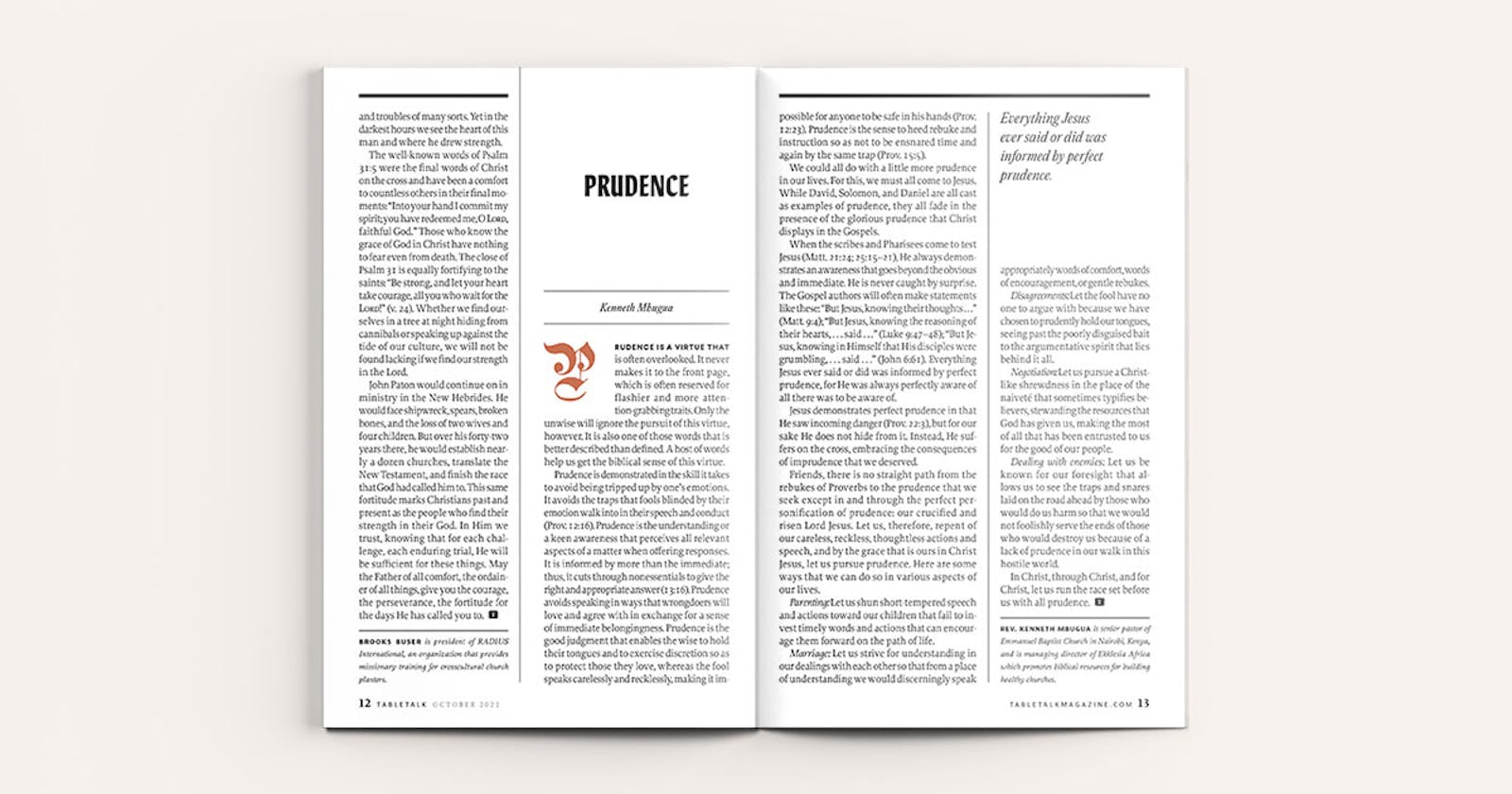
Request your free, three-month trial to Tabletalk magazine. You’ll receive the print issue monthly and gain immediate digital access to decades of archives. This trial is risk-free. No credit card required.
Try Tabletalk NowAlready receive Tabletalk magazine every month?
Verify your email address to gain unlimited access.
The etymology of the word patience has to do with suffering or, more precisely, the endurance of suffering. This etymology is reflected in the definition of both patience and impatience. One definition of patience is “the capacity to accept or tolerate, delay, trouble, or suffering without getting angry or upset,” while impatience is defined as “eager desire for relief or change; restlessness, intolerance of anything that thwarts, delays, or hinders.” Closely related is the word fret. As a verb in English, it has two basic meanings: (1) to be constantly or visibly worried or anxious, and (2) to gradually wear away by rubbing or gnawing. The Hebrew word translated as “fret” is charah, which means “to grow and burn with anger.” This word appears three times in Psalm 37: “Fret not yourself because of evildoers; be not envious of wrongdoers!” (Ps. 37:1); “Fret not yourself over the one who prospers in his way, over the man who carries out evil devices!” (Ps. 37:7); and “Refrain from anger, and forsake wrath! Fret not yourself; it tends only to evil” (Ps. 37:8). The context for David’s warnings appears to be the material abundance of the wicked (Ps. 37:1, 16) and the suffering of the righteous at the hands of the wicked (Ps. 37:12, 14, 32). It is against this backdrop that David offers his threefold exhortation not to fret.
In the first part of verse 7, David exhorts, “Be still before the LORD and wait patiently for him.” The King James Version says, “Rest in the LORD, and wait patiently for him.” Throughout this psalm, David speaks confidently about two ultimate truths: the eternal condemnation of the wicked (Ps. 37:2, 10) and the eternal blessedness of the righteous (Ps. 37:11, 18, 28–29). The call to be still or rest in God combined with the admonishment to wait patiently for Him can be summed up as a charge to trust God’s character and promises despite the appearance of things, whether it’s adversity or the temporal peace and prosperity of the wicked that we see.
Resting in God is a matter of governing one’s thoughts by what we know about His trustworthy character, recognizing the sufficiency of His present supply. Present trials and adversity can cloud what we know about ultimate judgment and ultimate reward. When that happens, we become impatient, eager for relief from our adversity or retribution against evildoers, which is why David goes on to say in verse 7, “Fret not yourself over the one who prospers in his way, over the man who carries out evil devices!” In other words, do not burn or grow with anger over these things. Ultimately, such fretting is a form of complaining against God as His sovereign purposes play out in the ups and downs of human experience.

Psalm 73 reflects the sentiment expressed in Psalm 37. The writer begins with an acknowledgment of God’s being good to His covenant people, but he admits, “But as for me, my feet had almost stumbled” (Ps. 73:2). The reason? “For I was envious of the arrogant when I saw the prosperity of the wicked” (Ps. 73:3). This is the very thing David is warning against in Psalm 37:7. But notice the turning point for the writer of Psalm 73. In verses 16–18, he writes: “But when I thought how to understand this, it seemed to me a wearisome task, until I went into the sanctuary of God; then I discerned their end. Truly you set them in slippery places; you make them all fall to ruin.”
Patience is trusting God and what He has promised and provided in Christ regardless of the difficulties and inequities of this present moment. Paul’s words in 2 Corinthians 4:16–17 are helpful here: “So we do not lose heart. Though our outer self is wasting away, our inner self is being renewed day by day. For this light momentary affliction is preparing for us an eternal weight of glory beyond all comparison.”
